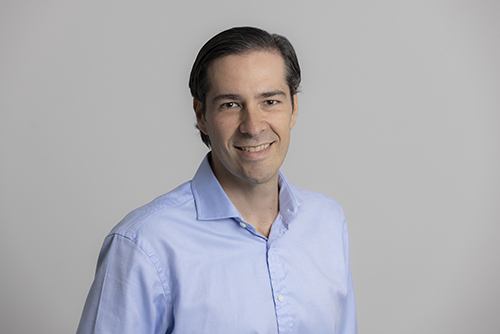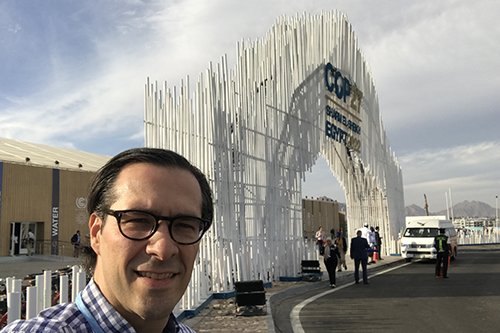What’s keeping CEO’s awake?
Jose Puyana discusses his motivation for joining the Bayes Global MBA, and his study into the ways firms in different industries and geographies manage their relationships with stakeholders, undertaken for the Business Mastery Project (BMP).
I interact with businesses every day. In several of these interactions, I perceive a common theme: the need for a more solid strategy to effectively relate with governments and other social and political stakeholders. Despite years of research on the impact of so-called “non-market forces” on the bottom line[1], many corporate leaders still make unacceptable mistakes when managing their relationships with these key players. In fact, in a survey published by McKinsey in 2020, only 7% of CEO’s said that they are responding well to the interests of stakeholders. The sheer majority know they need to do more.

With this idea in mind, I decided to study the Bayes Business School Global MBA in 2020. My aim was to further strengthen key skills to be able to put my knowledge and experience in public policy at the service of businesses, particularly those struggling to properly deal with the outside world. In addition to key modules on corporate strategy, leadership, and change management that touched upon these skills: I soon realised that the MBA at Bayes offered a valuable space to make this happen: the Business Mastery Project (or BMP). This key assignment nudges (and challenges) you to do a deep dive on a key issue, which allows students to become subject matter experts whilst fundamentally widening their network.
I accepted the challenge and decided to study the way in which firms in different industries and geographies manage their relationships with stakeholders. To do so, I conducted interviews with 18 practitioners, including corporate affairs/public affairs directors, business leaders and recruiters. Each of these encounters was an invitation to learn about their jobs, their views, and their difficulties, as well as the tools they used to solve them. In essence, they allowed me to unpick the key aspects in the external environment that are keeping CEOs awake. But, it also allowed me to go a bit further and identify valuable trends in the way firms organise to solve their staffing needs to effectively deal with the demands of their external environment.
I write this blog from COP27 at Sharm El-Sheikh (Egypt) where I have been liaising with businesses (big and small) from all around the world that understand the risks of climate change. Most have decided to act decisively and have announced commitments to cut their carbon emissions and invest in solutions that include priorities like clean tech and forests, among others. Few topics highlight the importance of managing the link between business, governments, and stakeholders like this one. “Investors are leading global discussions on climate change and our firm has to adapt” an interviewee told me, as they explained why their corporate affairs unit had become so prominent.

I completed this research process in a bit over three months. It took me (virtually) from the UK and Europe, all the way to Mexico and Colombia. People were incredibly keen on sharing their views with me. It allowed me to better map the needs of firms in a function where I see myself in a few years. I was also able to leverage key transferable skills that employers find indispensable in today’s world, in particular, the ability to build connections, think strategically and communicate effectively, among others. These key outcomes, as well as the network that I built during the research process, will complement the critically relevant insights I gained during the Bayes Global MBA to continue growing in a changing labour market.
As to the report’s applicability in the real world, I believe it provides a very useful tool for executives looking to better deal with the external environment. It will help them conclude that it’s not just about hiring a corporate affairs manager or an external consultant. It’s about having a well formulated strategy that is implemented and monitored at the highest possible level. As pointed out by one of my interviewees, “CEOs are realising that they need to have this sorted (…) they ask themselves ‘Who do I turn to?’ and they don’t always find an answer”. My conclusions fill in some of these gaps and provide elements that will inform decision-making processes in any firm willing to protect its bottom line by engaging more effectively with the outside world.
I invite anyone considering an MBA at Bayes as your next step to think about how the BMP can bolster your career aspirations. It will give you a valuable opportunity, use it wisely! Drop me a line if you’re interested in knowing more about my BMP or my overall experience at Bayes.
Jose Puyana
[1] See for example Baron, David (1995). ‘The Nonmarket Strategy System’, MIT Sloane Management Review, 37(Fall), 73–85.